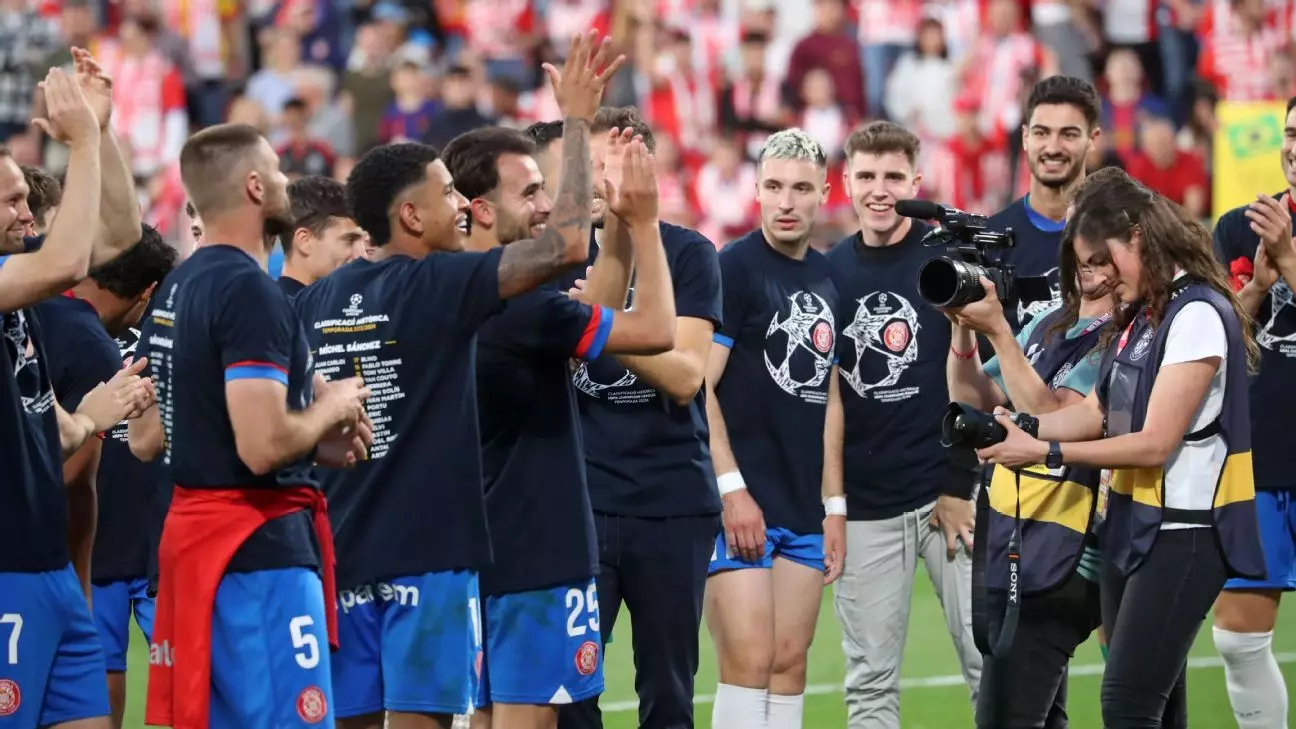Girona, a LaLiga team, has recently secured a spot in the Champions League for the first time in their club’s history. This achievement comes after a 4-2 victory against Barcelona, which moved them into second place in the league. However, the club’s qualification has raised concerns due to their partnership with Manchester City, who has also qualified for the 2024-25 Champions League.
According to Article 5 of the UEFA club competitions regulations, there is a rule that addresses the issue of multi-club ownership within the same competition. In this case, as Girona is a part of the City Football Group (CFG), their qualification alongside City has sparked a potential conflict. CFG owns 47% of Girona, with additional ownership by Marcelo Claure, the president of Club Bolivar, another CFG team. Pere Guardiola, the chairman of Girona, is also the brother of City manager Pep Guardiola.
The UEFA competition rules dictate that if two clubs from the same ownership group qualify for the same competition, the club that finishes higher in the domestic league will secure the spot. In the event that the two teams finish in the same position, the club with the higher club coefficient will be awarded qualification. Considering City’s recent successes and their proximity to securing the runners-up spot in the Premier League, it is likely that they will take the CFG spot in the Champions League over Girona.
Girona will have to demonstrate their organizational independence from Manchester City at a UEFA Club Financial Control Body (CFCB) hearing this summer in order to be cleared to compete in the Champions League. Similar situations have occurred in the past with clubs under the same ownership group, such as RB Leipzig and FC Salzburg, who were cleared to play in the Champions League together.
There have been instances where clubs with shared ownership have been allowed to participate in UEFA competitions after CFCB hearings. Clubs like Aston Villa and Vitoria, Brighton and Union Saint-Gilloise, and AC Milan and Toulouse were all given clearance to compete despite ownership concerns. However, clubs like Manchester United and Nice, who have ties to Sir Jim Ratcliffe’s INEOS Group, will also face a CFCB hearing if they qualify for European competition.
Girona’s qualification for the Champions League has been overshadowed by their connection to Manchester City through the CFG. While it is unlikely that Girona will be demoted to the Europa League, they must prove their independence from City in order to participate in the competition. UEFA’s rules and regulations surrounding multi-club ownership and shared ownership concerns will play a significant role in determining Girona’s fate in the Champions League.
